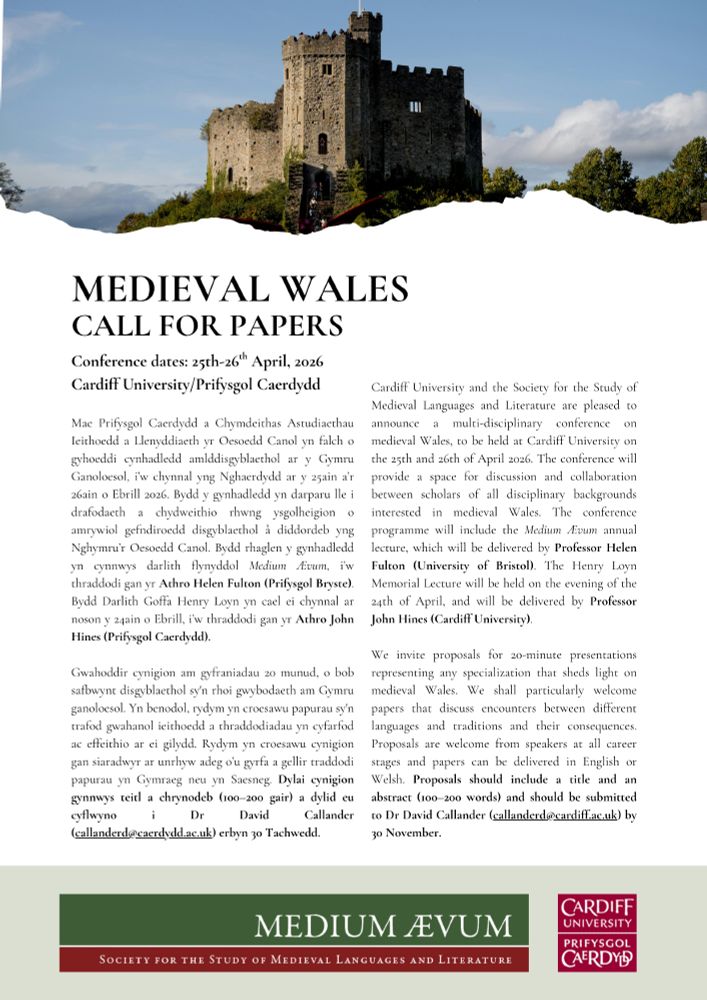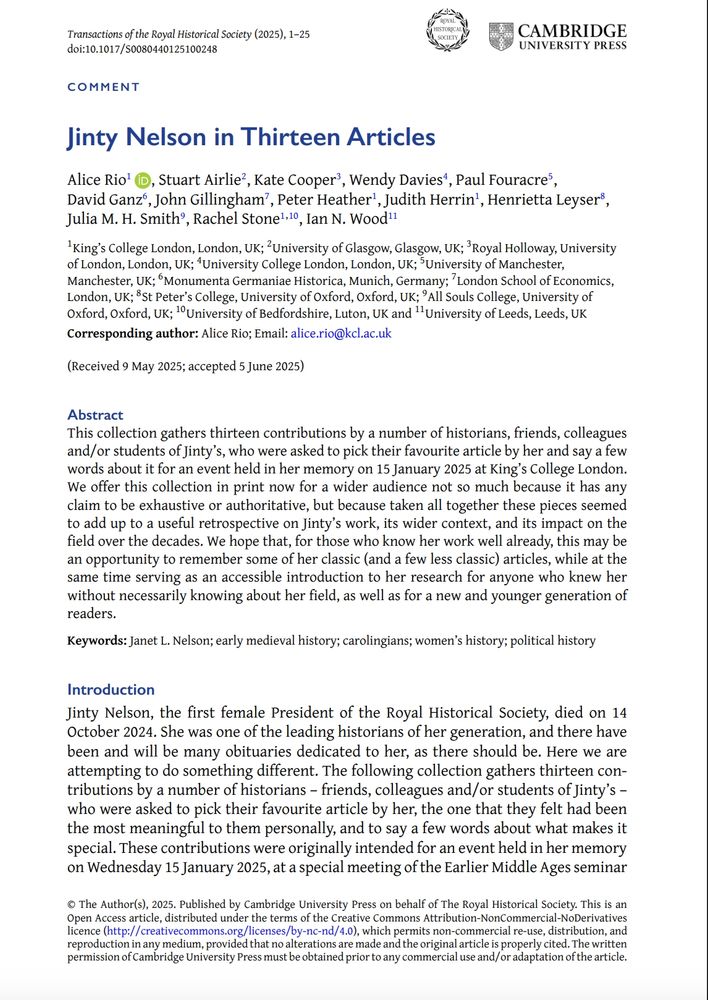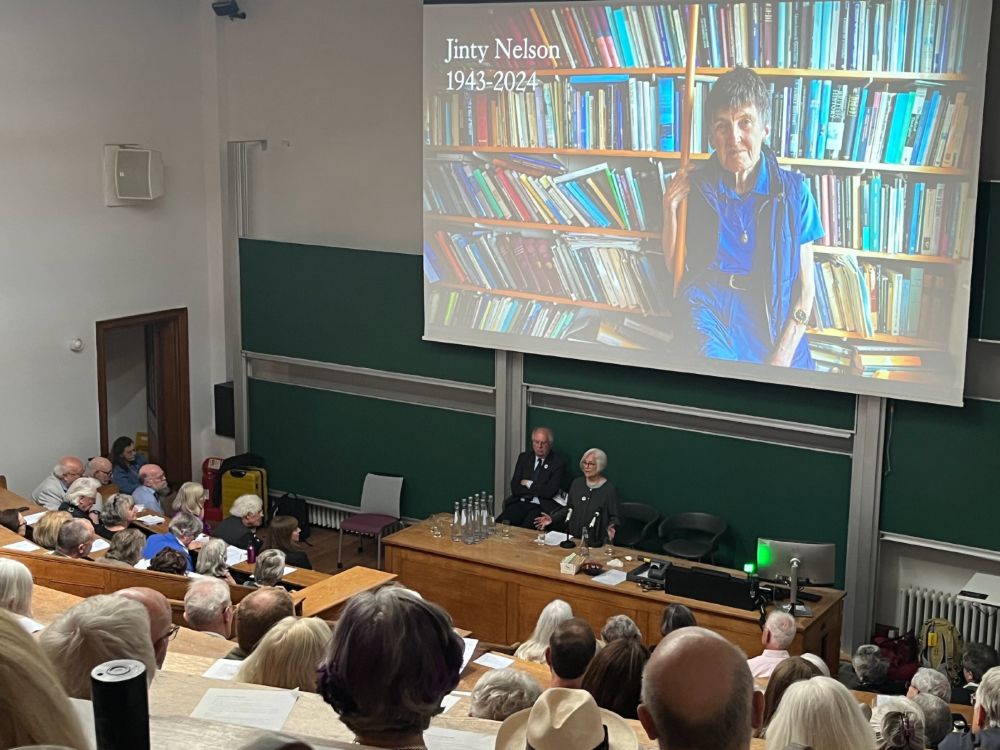Society for the Study of Medieval Languages and Literatures
@mediumaevum.bsky.social
3K followers
180 following
84 posts
The Society for the Study of Medieval Languages and Literatures supports and promotes research into the cultures and intellectual life of the Middle Ages.
Posts
Media
Videos
Starter Packs
Reposted by Society for the Study of Medieval Languages and Literatures
Reposted by Society for the Study of Medieval Languages and Literatures

















